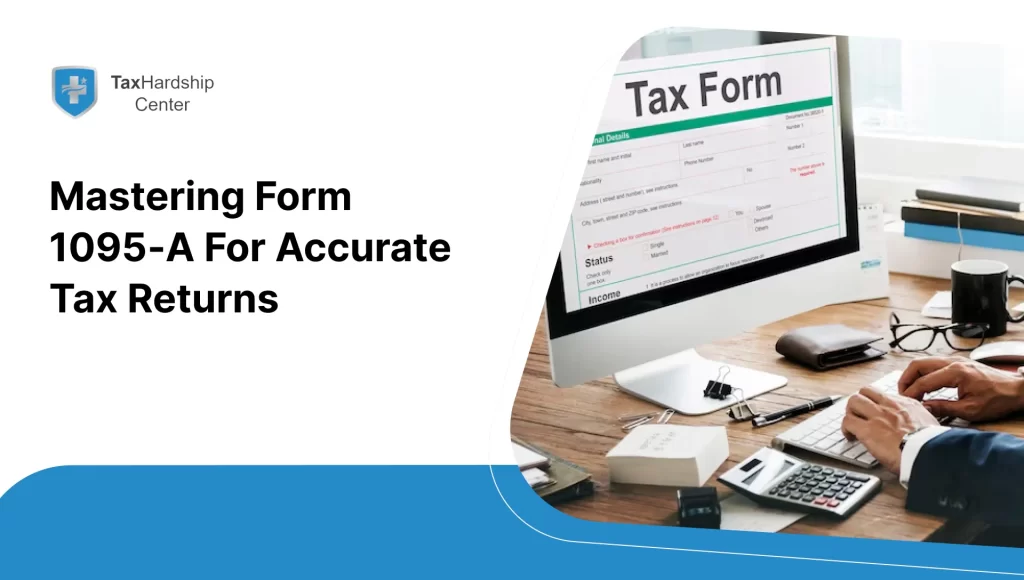Managing finances as a couple can be challenging, especially when one spouse owns a business. Blending personal and business finances can lead to financial trouble and increase the risk of becoming liable for your spouse’s business tax debt. This guide explores legal and financial strategies to protect yourself from such liabilities and safeguard your money and property.
The Crucial Question: Am I Liable for My Spouse’s Business Tax Debt?
In most jurisdictions, creditors can pursue spouses for tax debts incurred during the marriage, even if they weren’t involved in the business. Regardless of your knowledge or involvement, you could be personally liable for your spouse’s business tax debt.
It’s essential to understand the legalities and take steps to safeguard your financial health. At the Tax Hardship Center, we’re here to guide you through the complexities of spousal business tax debt and offer expert assistance in securing your financial future. If you’re struggling with these concerns, contact us, and we’ll work together to find a solution.
Understanding Joint and Separate Liability in Marriage
While sharing financial burdens can be beneficial, understanding the legal distinctions between joint and separate liability within a marriage is crucial for protecting financial resources. Here’s a breakdown of the key concepts:
Joint Liability:
- Joint liability applies when spouses are legally responsible for a debt or obligation.
- Commonly arises from:
- Jointly signed contracts, such as mortgages or loans.
- Certain types of business structures, like partnerships or community property states.
- Tax debts incurred during the marriage in some jurisdictions.
- In cases of joint liability, creditors can pursue either spouse or both for full payment.
- Even if one spouse wasn’t directly involved in the debt, they may still be held responsible.
Separate Liability:
- Applicable to debts or obligations incurred by one spouse alone, before or during the marriage.
- Examples include:
- Personal loans are taken out solely by one spouse.
- Business debts incurred by one spouse’s sole proprietorship.
- Pre-marital debts are brought into the marriage by one spouse.
- Generally, creditors cannot pursue the other spouse for separate debts unless:
- They can demonstrate that the non-debtor spouse co-signed or assumed responsibility for the debt.
- The debt was incurred for the benefit of the other spouse or the family.
- Community property laws apply, making both spouses jointly liable for certain debts.
The Principle of Shared Responsibility
When couples tie the knot, they often don’t anticipate how intertwined their financial lives can become. In the eyes of the law, marriage is more than a romantic union; it’s an economic partnership. This partnership comes with certain obligations, especially when it comes to taxes.
Joint Tax Returns Equals Joint Responsibility
Filing joint tax returns might simplify your finances and even offer benefits, but it also means you and your spouse are both on the hook for any tax debts that arise. The concept of joint and several liability applies here, meaning the Internal Revenue Service (IRS) can hold either spouse responsible for the total amount of tax due, even if the tax debt originates from one spouse’s business.
Separate Finances for Clarity
Married couples can take preventive measures to minimize their risk of shared tax debt. One approach is to keep personal and business finances distinctly separate. They can have individual bank accounts and credit cards, different investments, and precise documentation for all financial transactions.
Doing this creates a financial barrier that makes it harder for the IRS to claim personal assets for your spouse’s business debts. It’s a way to show that your money and property should not be on the line for business obligations that aren’t yours.
Communication and Legal Agreements
Honest and open communication about finances is a non-negotiable aspect of marriage, mainly when one partner owns a business. Not only should you discuss your finances regularly, but you should also consider legal agreements like prenuptial or postnuptial contracts. These agreements can specify financial responsibilities and protect personal assets from potential tax liabilities.
The Impact of Business Ownership on Tax Debt
Running a business can make the financial situation of a marriage more complex. Your spouse is responsible for paying taxes on their business income as a business owner. However, their business ownership can also affect your tax liability in various ways:
1. Shared Legal and Financial Responsibility:
- Joint Tax Filing: A joint tax return makes both spouses legally responsible for the entire tax debt, regardless of who earned the income or incurred the debt.
- Community Property States: In states that follow community property laws, spouses are considered equal owners of all assets and liabilities acquired during the marriage. Your assets may be at risk if your spouse’s business owes taxes.
- Guarantees and Co-Signing: If you co-signed any loan applications or guaranteed any debts related to your spouse’s business, you become personally liable for those debts.
2. Financial Commingling:
- Commingling of Funds: When personal and business finances are combined, it can become difficult to track income and expenses, which may lead to legal issues if tax disputes arise.Joint Ownership of Assets: If you and your spouse own assets jointly, the IRS may seize them to satisfy tax debts.
3. Tax Implications of Business Structures:
- Sole Proprietorship: The owner’s and the business’s income are combined for tax purposes in a sole proprietorship because they are considered one entity.
- Partnership: Each partner is responsible for a portion of the business’s tax debt based on their percentage of ownership.
- Limited Liability Company (LLC): An LLC offers some protection from personal liability, but this protection can be pierced under certain circumstances.
4. Potential for Financial Strain:
- Tax Debt Burden: If your spouse’s business incurs significant tax debt, it can create financial strain. This can lead to debt collection and even bankruptcy.
- Credit Score Impact: Tax liens and levies associated with unpaid business taxes can negatively affect your and your spouse’s credit scores, making obtaining loans or renting property difficult.
5. Importance of Communication and Planning:
- Open and transparent communication about finances: Discussing your financial situation openly and honestly with your spouse is crucial. Knowing your spouse’s business income, expenses, and tax obligations is essential for making informed financial decisions.
- Developing a Financial Plan: A solid financial plan that considers personal and business finances can help you manage your money effectively and minimize the risk of tax debt.
- Seeking Professional Legal and Financial Advice: Consulting a qualified lawyer and financial advisor specializing in business tax law and marital finances can offer valuable guidance and help you develop strategies to protect your economic well-being.
Understanding the financial implications of your spouse’s business ownership is crucial to safeguard your assets and mitigate the risk of becoming liable for their tax debt. By taking proactive measures like maintaining separate finances, establishing clear agreements, and seeking professional advice, you can navigate the complexities of business ownership and ensure your financial security.
Personal Involvement and Liability
If you’re involved in your spouse’s business operations or management, your risk of being liable for tax debts increases. Even mere awareness of tax obligations can sometimes implicate you, mainly when it’s clear that no actions were taken to resolve them.
Protective Measures for Non-Involved Spouses
What if you’ve had zero involvement in your spouse’s business? You might think you’re safe from any tax liabilities. Unfortunately, that’s not always the case. Tax laws can still implicate you, mainly if your spouse’s business tax debts were accrued during your marriage.
To protect yourself, distinguish between your finances and your spouse’s business dealings. Also, keep abreast of the business’s tax situation to preempt any surprises.
Strategies to Shield Personal Assets
Legal Approaches for Asset Protection
The threat of losing personal assets to settle a spouse’s business tax debt is a sobering prospect. But, there are legal strategies to protect your property and savings from such situations.
Asset Titling
One of the foremost strategies is to hold your assets in your name only. This might include real estate, vehicles, bank accounts, and investments. By titling assets solely in your name, you create a legal distinction to prevent these from being considered for your spouse’s business debts.
Proactive Financial Management
Keeping your finances separate is about more than just having different bank accounts. It’s also about proactive, strategic management of your assets and income. This includes maintaining meticulous records and documentation that demarcate what’s yours.
Seeking Expert Advice
Understanding tax laws and leveraging them to your advantage is outside the purview of the average person. That’s where the Tax Hardship Center comes in. Our team of tax attorneys and financial advisors is well-equipped to navigate you through this complex landscape, providing legal advice and financial strategies to minimize any potential liability.
Seeking Professional Guidance
Facing potential liability for your spouse’s business tax debt can feel overwhelming and complex. Fortunately, you don’t have to navigate this challenging situation alone. Seeking professional guidance from qualified experts can ease your burden and help you chart a clear course.
1. The Role of Tax Attorneys and Financial Advisors
Consulting with professionals can make a profound difference when faced with the potential of being implicated in your spouse’s business tax debt. Tax attorneys can analyze your situation, help resolve disputes, and negotiate settlements that protect your rights. Financial advisors offer insights into fortifying your assets against possible claims.
2. The Tax Hardship Center’s Expertise
At the Tax Hardship Center, we understand the stress and confusion of spousal business tax debt. Our experts are ready to help you secure your assets, manage your liabilities, and keep your finances on track. If you’re concerned about how your spouse’s business tax debt might affect you, let us assist you in finding the best path forward.
In Conclusion
Navigating the intricacies of spousal business tax debt is challenging but manageable. With the proper knowledge, financial strategies, and legal safeguards, you can protect your assets and ensure your financial security isn’t compromised by your spouse’s business dealings.
Remember, being proactive and seeking professional guidance are your best defenses against unexpected tax liabilities. At the Tax Hardship Center, we are committed to helping you understand your responsibilities and shield your finances from adverse impacts. Contact us today to explore how we can support you in these efforts.
Frequently Asked Questions
1. Am I responsible for my spouse’s business tax debt?
Generally, you are only responsible for your spouse’s business tax debt if you are directly involved. Co-signing loans, being a joint owner of a business, or jointly owning property that could be used to pay off a debt are all ways that can make you liable for the debt. However, individual circumstances may differ, and it is essential to seek legal advice to understand your situation and potential liabilities clearly.
2. How can I shield myself from my spouse’s business tax debt?
Several proactive measures can help minimize the impact of your spouse’s business tax debt on your finances. Consider obtaining a pre-nuptial agreement to define financial responsibilities and protect your assets. Maintaining separate bank accounts and credit cards prevents the commingling of assets, and avoiding co-signing or guaranteeing business loans for your spouse further safeguards your financial well-being. Additionally, educating yourself about business tax laws empowers you to make informed decisions and identify potential risks. Seeking guidance from a financial advisor or lawyer can provide personalized strategies for protecting your financial interests.
3. What happens if my spouse files for bankruptcy?
While bankruptcy may discharge your spouse’s business tax debt, you remain liable if you co-signed or guaranteed it. Consulting a lawyer can provide you with an understanding of your rights and responsibilities in this situation, helping you to navigate legal complexities effectively.
4. “What are the possible financial implications of my spouse’s business tax liability?”
Your spouse’s business tax debt can impact your finances in several ways. Wage garnishment may occur to satisfy the debt. Additionally, liens placed on your home or other assets could lead to their seizure if the debt remains unpaid. Furthermore, your credit score may be negatively affected if you are jointly responsible for the debt.
5. What resources can aid me in managing my partner’s business tax debt?
There are several resources available to help you navigate spousal business tax debt. The official website of the IRS provides detailed information on tax debt relief options. The National Foundation for Credit Counseling offers those in need free financial counseling and debt management services. Additionally, the American Bar Association can assist you in finding a qualified lawyer in your region. It’s important to remember that dealing with this situation is not uncommon, and seeking professional assistance can safeguard you from financial hardship and ensure a secure financial future.








